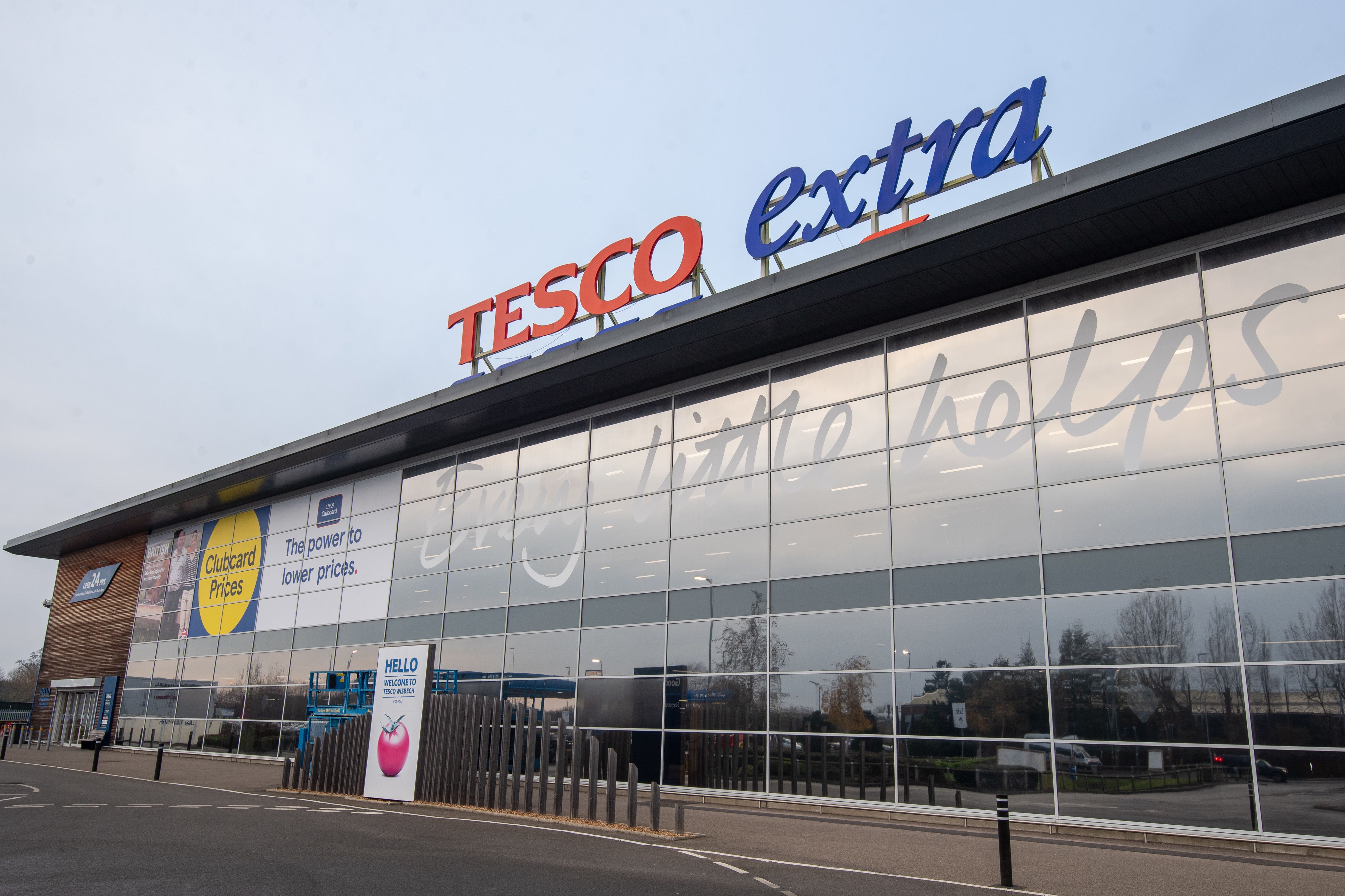Tesco boss urges politicians to stand by net zero and back green innovation
Ken Murphy said Government and industry must do more to work together on green solutions.

Your support helps us to tell the story
From reproductive rights to climate change to Big Tech, The Independent is on the ground when the story is developing. Whether it's investigating the financials of Elon Musk's pro-Trump PAC or producing our latest documentary, 'The A Word', which shines a light on the American women fighting for reproductive rights, we know how important it is to parse out the facts from the messaging.
At such a critical moment in US history, we need reporters on the ground. Your donation allows us to keep sending journalists to speak to both sides of the story.
The Independent is trusted by Americans across the entire political spectrum. And unlike many other quality news outlets, we choose not to lock Americans out of our reporting and analysis with paywalls. We believe quality journalism should be available to everyone, paid for by those who can afford it.
Your support makes all the difference.Tesco’s chief executive has called on political parties to stand by their net zero commitments and give businesses confidence to invest in the transition.
Speaking at the Reuters Impact event in London on Wednesday, Ken Murphy said green innovation in the food industry could be transformational in helping to cut costs and carbon, protect food security and stimulate green growth.
But he warned that the Government and industry must do more to work together on climate solutions as levels of investment in the UK remain well below the average for Organisation for Economic Co-operation and Development (OECD) countries.
It comes as Mr Murphy unveiled plans to expand the supermarket’s trial of low carbon fertilisers in the UK.
As we work to protect customers and suppliers from rising costs today, we must also do all we can to safeguard the shopping basket from shocks tomorrow
He said that Tesco will partner with its suppliers to drive a 10-fold increase in the number of hectares being cultivated by low-carbon alternatives for the 2024 growing season.
The supermarket has also committed to sharing the findings with other businesses.
It is also highlighting the potential financial benefit for UK farmers struggling with fertiliser shortages and costs rising by as much as 140% last year due to the war in Ukraine.
Mr Murphy said: “As we work to protect customers and suppliers from rising costs today, we must also do all we can to safeguard the shopping basket from shocks tomorrow.
“That means building a more resilient, sustainable and productive food system. One that guarantees customers a long-term supply of quality, affordable food as well as improving the economy and world they live in.”
The Tesco boss said innovations like low-carbon fertiliser are part of the solution, adding that early results from their trial show “huge potential” for cutting greenhouse gas emissions, enhancing soil health and water quality and providing greater cost certainty for farmers.
“But to realise the full benefits, we need to see action beyond our supply chain, too,” he added.
“We’ll only get there through cross-industry and cross-party collaboration.
“We all need to drive towards the same goal, and be better at sharing learnings and resources on the way.
“The food industry is willing to invest, but needs more stability and confidence when it comes to future policy.
“That is why it’s critical that all parties, regardless of political creed, stand by their net zero commitments and timelines.”
In its first year, Tesco’s trial has seen 1,300 hectares of land cultivated using eight different low-carbon fertilisers, six of which were manufactured in the UK from material, including food waste, chicken litter, fire extinguisher waste and algae.
This produced 70,000 tonnes of produce such as lettuces, carrots and potatoes for Tesco customers, the supermarket said.
It added that initial results found they were just as effective as conventional fertilisers and cut emissions by up to 50%.
The retailer said it plans to expand the trial to 13,000 hectares next year.
It also plans to roll out the initiative to more of its sustainable farming groups – many of which manage pasture and forage-based systems for rearing livestock – as well as its main vegetable suppliers.